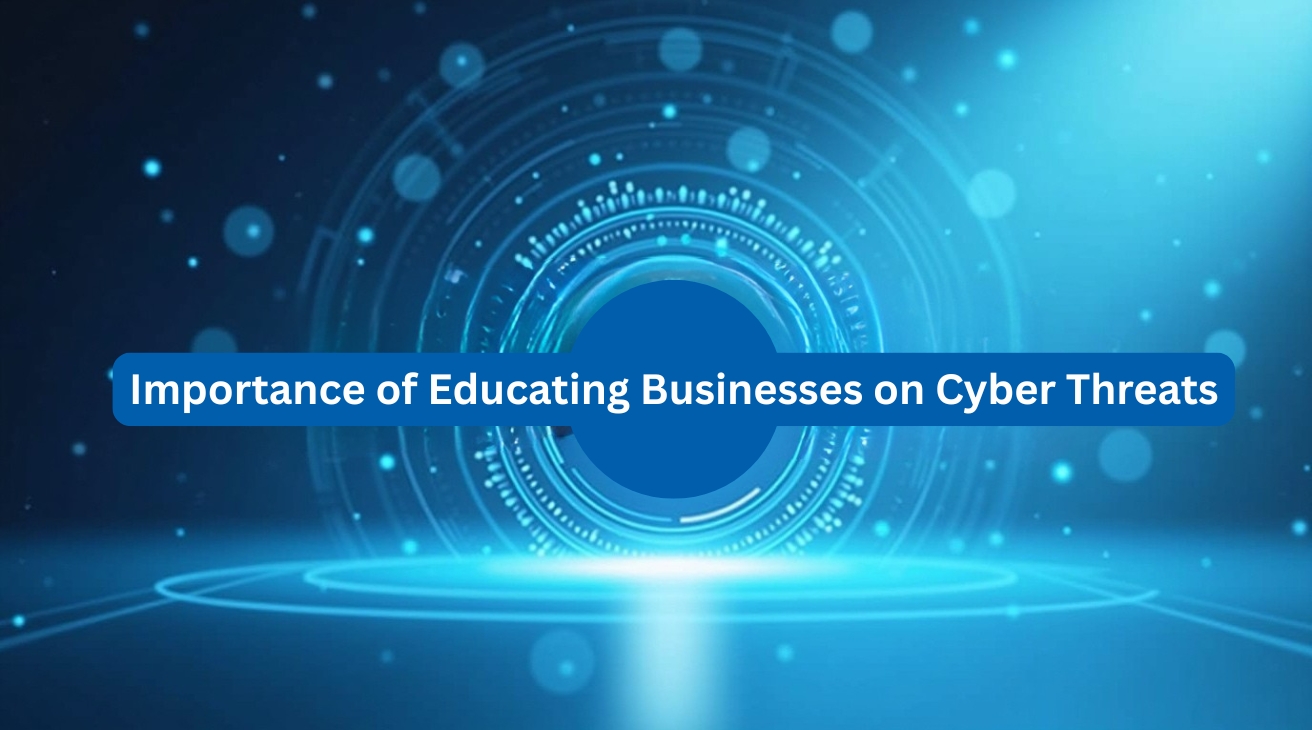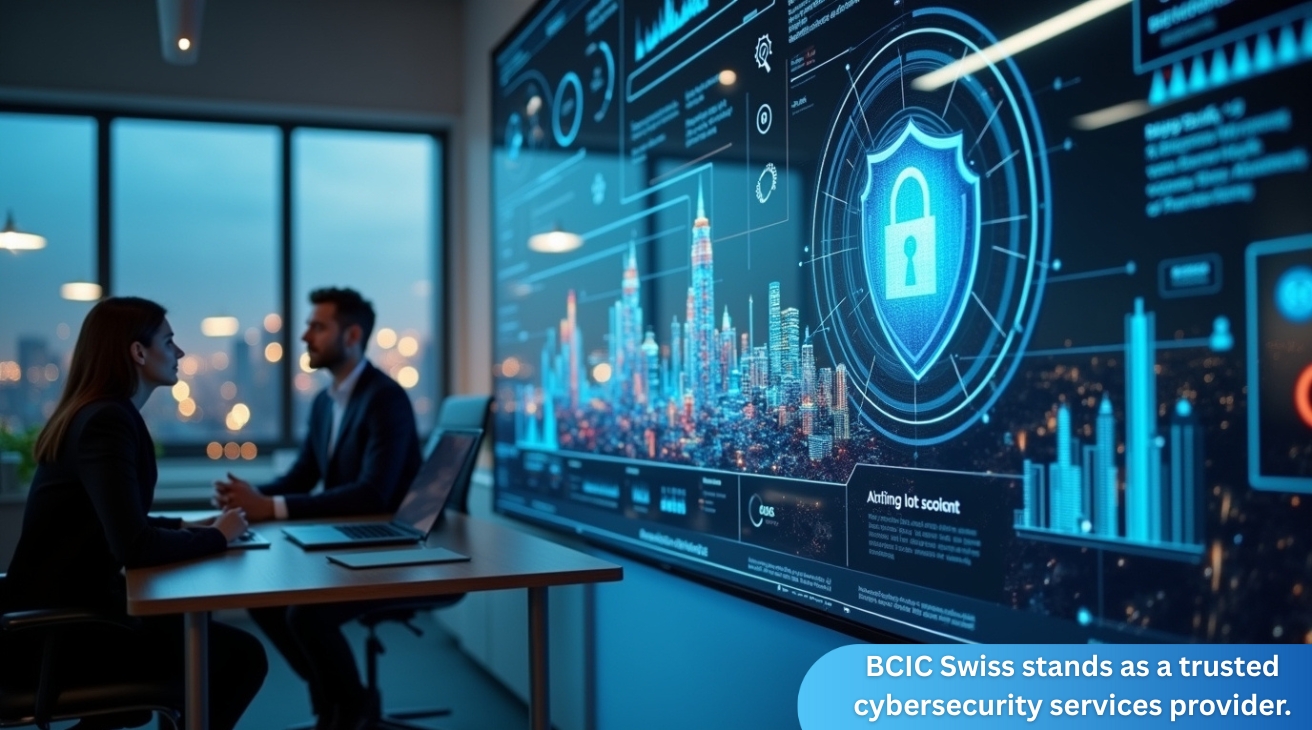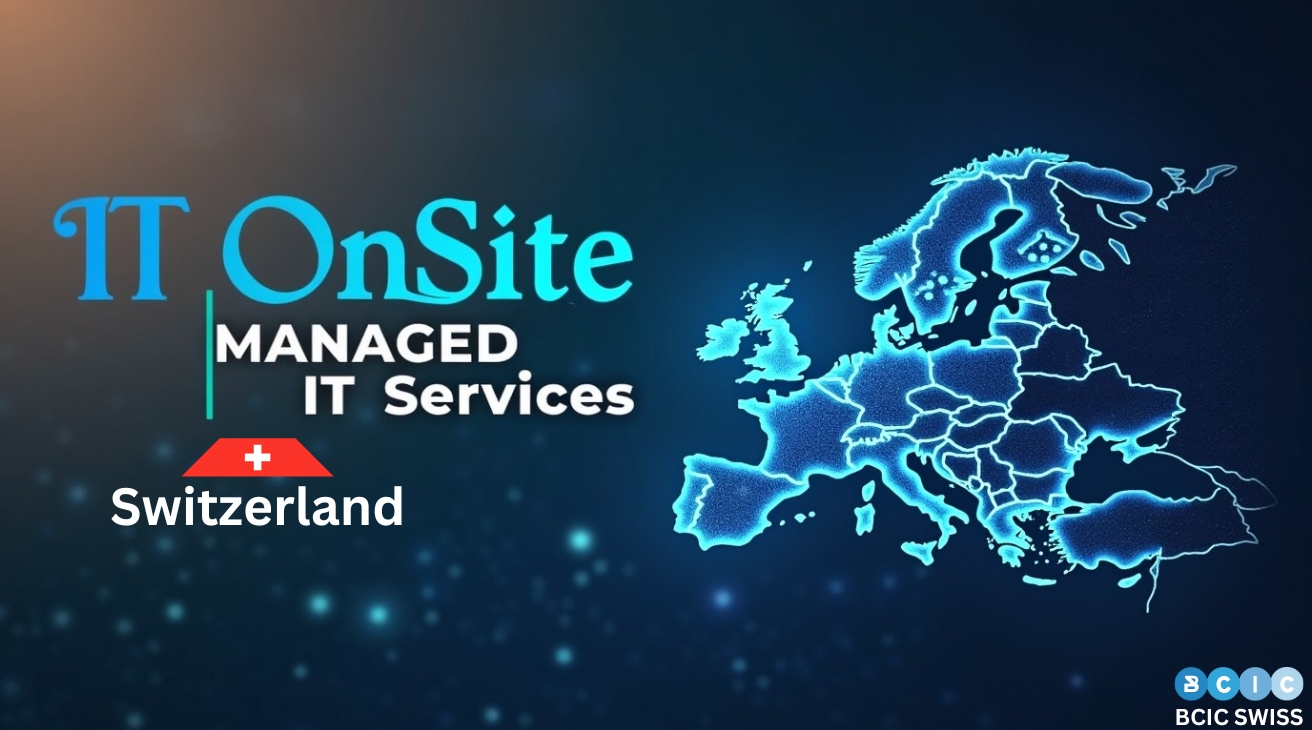Cyber Security Services Switzerland
By 2025, it's estimated that cyber crime will cost the world $10.5 trillion annually, underlining the critical need for robust cyber security solutions. Switzerland, noted for its technological advancements and stringent privacy laws, is at the forefront of tackling these challenges. Their proactive approach is setting new standards in cybersecurity frameworks worldwide.
Swiss experts have been continually innovating, drawing on a history of precision and reliability in sectors like banking. In 2025, we see significant strides with cutting-edge technologies such as AI-driven threat detection and quantum encryption. These advancements are not just theoretical; they represent practical solutions actively deployed to safeguard sensitive data.
Switzerland's cyber security solutions in 2025 will focus on advanced technologies like AI-driven threat detection, quantum encryption, and comprehensive compliance with GDPR and FADP regulations. Key players such as BCIC Swiss will lead by providing expert guidance, proactive monitoring, malware defense, and website security to ensure robust data protection for businesses.
Emerging Trends in Cyber Security for Switzerland by 2025
By 2025, artificial intelligence will play a key role in cyber security. AI can quickly identify and respond to threats, reducing the chances of data breaches. This will be particularly beneficial for small and medium-sized enterprises (SMEs). These businesses often lack the resources to monitor cyber threats continuously. With AI, they can have robust protection without huge costs.
Quantum computing is another exciting development in the realm of cyber security. Unlike traditional methods, quantum encryption is nearly impossible to crack. This means that sensitive data, especially in banking and healthcare, will be even more secure. Swiss businesses will likely adopt these methods to protect client information. As a result, the overall trust in digital transactions will increase.
Website security continues to be a major focus in 2025. Advanced security tools will provide stronger defenses against malware and phishing attacks. These tools are more user-friendly, making it easier for businesses to implement them. This will help prevent unauthorized access and safeguard customer data. Improved website security is crucial for maintaining consumer trust and business reputation.
Government regulations also have an impact on cyber security trends. New laws and guidelines will require companies to enhance their security measures. Compliance with data protection regulations like GDPR and FADP will be essential. This ensures that personal data is protected, reducing the risk of data breaches. Businesses that fail to comply may face severe penalties.
The Integration of AI in Security Protocols
AI is revolutionizing the world of cyber security. With machine learning, AI can identify patterns and predict potential threats. This helps in detecting unusual activities that might indicate a cyber attack. Security protocols can then respond swiftly to mitigate the risk. It provides an extra layer of defense for sensitive data.
An interesting aspect is how AI enhances phishing detection. Traditional methods rely on recognizing known phishing sites. AI, on the other hand, uses advanced algorithms to spot even new or unfamiliar phishing patterns. This ensures that users are protected against the latest threats. The continuous learning ability of AI makes it a powerful tool in combating cyber risks.
-
Automated threat recognition
-
Real-time response systems
-
Advanced encryption methods
Another area where AI shines is in user authentication processes. Biometrics such as facial recognition and fingerprints can be integrated with AI for added security. AI can analyze these biometric data accurately, ensuring only authorized users gain access. This reduces the chances of unauthorized access or identity theft. Businesses benefit greatly from this enhanced security.
Data analysis is faster and more accurate with AI. Cyber security teams can leverage AI to sift through large amounts of data quickly. This can uncover hidden threats that might be missed by human eyes. Automated alerts can notify teams of potential issues before they escalate. AI, therefore, not only improves security but also boosts efficiency.
Leveraging Quantum Computing for Encryption
Quantum computing is a game-changer in the field of encryption. Unlike traditional computers, quantum computers use quantum bits, or qubits, which can represent multiple states simultaneously. This allows them to process complex calculations at incredible speeds. For encryption, this means much stronger security protocols that are nearly impossible to break. Sensitive data can be protected more effectively.
Another benefit of quantum encryption is its robustness against hacking. Traditional methods of breaking encryption rely on brute force attacks, but quantum encryption makes this almost unfeasible. This is because any attempt to measure the quantum state of the encrypted data disturbs it. Hackers would leave detectable traces of their tampering. As a result, data remains secure and intact.
-
Enhanced encryption strength
-
Robust resistance to hacking
-
Secure data transmission
Secure data transmission is another area where quantum computing shines. Quantum key distribution (QKD) allows two parties to share encryption keys securely. Any eavesdropping can be detected immediately due to quantum properties. This ensures that communication channels remain secure. Businesses, particularly in sectors like finance and healthcare, greatly benefit from this technology.
Quantum encryption is not just theoretical; it is being implemented in real-world applications. Organizations are beginning to invest in quantum technologies to future-proof their security measures. As more businesses adopt quantum encryption, it will become a standard practice. This trend ensures evolving and adaptive security in an increasingly digital world. Quantum computing is paving the way for a new era of data protection.
Strengthening Website Security through Advanced Tools
Website security is more crucial than ever, given the rise in cyber threats. Advanced security tools can significantly enhance a website's defenses. Firewalls, malware scanners, and intrusion detection systems are now smarter and more efficient. These tools can detect and neutralize threats in real-time. This keeps sensitive data safe from unauthorized access.
Firewalls act as the first line of defense for websites. They monitor incoming and outgoing traffic and block any suspicious activities. Modern firewalls use machine learning to adapt to new threats. This ensures they are always a step ahead of hackers. Businesses can secure their websites by implementing robust firewall protection.
-
Real-time threat monitoring
-
Automated malware scans
-
Intrusion detection systems
-
Regular security updates
Automated malware scanners are another vital tool in website security. These scanners continuously look for malicious software that could compromise a website. If malware is found, it is quarantined and removed immediately. This proactive approach minimizes the risk of data breaches. Routine scans help maintain a secure online environment.
Intrusion detection systems (IDS) are designed to pick up on unusual activities that could signal an attack. When an anomaly is detected, the IDS alerts the security team. This allows for a swift response to potential threats. With an IDS in place, businesses can monitor their website's security status in real-time. This rapid alert system is key to preventing cyber attacks.
Regular security updates are essential to keep protection tools effective. Developers frequently release patches to address newly discovered vulnerabilities. Keeping software updated ensures that websites are protected against the latest threats. Neglecting updates can leave websites vulnerable to attacks. Regularly updating security tools is a simple yet essential practice.
Impact of Government Regulations on Cyber Security Standards
Government regulations play a significant role in shaping cyber security standards. Regulations such as the General Data Protection Regulation (GDPR) and the Federal Act on Data Protection (FADP) set strict guidelines for businesses. These rules ensure that companies protect customer data with the highest standards. Non-compliance can lead to heavy fines. This pushes businesses to adopt stronger security measures.
GDPR has introduced rigorous requirements for data protection across Europe. Swiss companies dealing with EU citizens' data must comply with these regulations. This involves implementing stringent security protocols and conducting regular audits. As a result, businesses invest in better encryption technologies. This compliance improves overall data security.
-
Enhanced data protection measures
-
Regular security audits
-
Increased investment in encryption
The Federal Act on Data Protection (FADP) in Switzerland is another crucial regulation. It demands that businesses safeguard personal information by using advanced security systems. Companies must also report data breaches promptly. This transparency helps build trust with customers. Adhering to FADP enhances the credibility of businesses.
Other industry-specific regulations also impact cyber security standards. For example, the FINMA guidelines regulate the financial sector, requiring robust security frameworks to protect financial data. Similarly, the healthcare sector must comply with laws to safeguard patient information. These regulations enforce strict cyber security practices. This ensures sensitive data remains protected.
Compliance with government regulations leads to an overall improvement in cyber security. Companies are required to update their systems regularly. This constant vigilance helps in mitigating potential threats. Businesses gain customer trust by maintaining high standards. Government regulations act as a catalyst for stronger cyber security frameworks.

Importance of Educating Businesses on Cyber Threats
Educating businesses about cyber threats is crucial in today's digital world. Many companies are unaware of the risks they face online. By understanding cyber threats, businesses can take proactive steps to protect their data. Training employees on recognizing phishing scams and using strong passwords is essential. This knowledge reduces the chances of cyber attacks.
Phishing scams are a common threat that targets businesses. Scammers often trick employees into revealing sensitive information. Educating staff on how to spot and avoid these scams can prevent data breaches. Regular training sessions help keep employees alert. Staying informed about the latest phishing tactics is vital.
-
Recognizing phishing emails
-
Importance of strong passwords
-
Updating software regularly
Strong passwords are a simple yet effective way to enhance security. Businesses should encourage employees to create unique passwords for different accounts. Using a mix of letters, numbers, and symbols makes passwords stronger. Password managers can help manage and generate complex passwords. This practice protects company data from unauthorized access.
Keeping software up to date is another important aspect of cyber security education. Hackers often exploit vulnerabilities in outdated software. By regularly updating systems, businesses can fix security flaws. This minimizes the risk of cyber attacks. Employee awareness of the importance of updates ensures systems are always secure.
Creating a culture of security within the organization is beneficial. When employees understand the risks and consequences, they are more likely to act responsibly. Regular workshops, webinars, and informational sessions can reinforce good practices. Knowing how to respond in case of an incident is critical. Educating businesses on cyber threats builds a stronger and safer digital environment.

Key Players in Switzerland's Cyber Security Landscape
Switzerland is home to several prominent cyber security companies. These organizations play a pivotal role in protecting data and infrastructure. One such company is BCIC Swiss, known for its affordable and comprehensive cyber security services. They offer expert guidance, website security, phishing defense, and compliance assurance. Their proactive approach helps businesses stay secure.
Another key player is Swiss Cyber Institute, which has extensive experience in global IT services. They specialize in managed security services and network security solutions. Excis works with various industries including finance, healthcare, and manufacturing. Their expertise helps clients maintain robust cyber defenses. Keeping up with the latest threats ensures reliable protection.
BCIC Swiss stands as a trusted cybersecurity services provider, safeguarding high-profile clients, including ESP, Excis, A&O, Iron System, Fortitude, Nicsa Global (FNG), and Chanel. Our tailored security solutions ensure compliance, threat prevention, and business continuity for organizations operating in Switzerland and beyond.
Why Leading Brands Trust BCIC Swiss for Cyber Security
✅ Enterprise-Grade Threat Protection
We deploy advanced threat detection, SIEM, and endpoint security to defend against ransomware, phishing, and zero-day attacks—ensuring uninterrupted operations for global clients.
✅ Compliance & Regulatory Expertise
Switzerland’s strict FADP, GDPR, and FINMA regulations demand rigorous security measures. BCIC Swiss helps enterprises maintain compliance while minimizing risks.
✅ Managed Security Services (MSSP) for 24/7 Defense
Our Security Operations Center (SOC) provides real-time monitoring, incident response, and vulnerability management—trusted by brands like Chanel and Nicsa Global (FNG).
✅ Penetration Testing & Ethical Hacking
Before attackers strike, we identify weaknesses. Our certified ethical hackers conduct rigorous penetration tests for firms like Iron System and Fortitude, ensuring ironclad security.
✅ Cloud & Zero Trust Security
With businesses migrating to cloud platforms, BCIC Swiss implements Zero Trust Architecture (ZTA) and multi-factor authentication (MFA) to secure hybrid environments.
Challenges Facing Switzerland’s Cyber Security Sector in 2025
Switzerland’s cyber security sector faces several challenges as we move into 2025. One major issue is the increasing complexity of cyber threats. Hackers are becoming more sophisticated, using advanced techniques to breach systems. This makes it difficult for traditional security measures to keep up. Constantly evolving strategies are needed to combat these threats.
Another challenge is the shortage of skilled cyber security professionals. As the demand for cyber security experts grows, there is a widening gap in the talent pool. This shortage makes it harder for businesses to find qualified individuals to protect their data. Investing in education and training programs is crucial. Encouraging more young people to pursue careers in cyber security can help close this gap.
-
Increasing complexity of cyber threats
-
Shortage of skilled professionals
-
New regulations and compliance
-
High cost of implementation
Regulations and compliance requirements are also becoming stricter. While these rules help maintain high security standards, they can be challenging for businesses to navigate. Companies must invest time and resources to ensure they meet these requirements. Non-compliance can result in hefty fines and loss of customer trust. Keeping up with regulatory changes is an ongoing challenge for many organizations.
The high cost of implementing advanced security solutions is a significant hurdle. Small and medium-sized enterprises (SMEs) might struggle to afford the latest technologies. Cyber security tools and software can be expensive, putting a strain on limited budgets. Finding affordable yet effective solutions is essential for SMEs. Partnerships and collaborations can help distribute costs and make security more accessible.
Finally, ensuring data privacy while adopting new technologies poses another challenge. As businesses integrate AI and IoT devices, they must balance innovation with security. These technologies can introduce new vulnerabilities if not managed properly. Maintaining robust security while embracing new tech is a delicate act. Continuous monitoring and updates are essential to protect sensitive information.
Expert Solutions from BCIC Swiss for Robust Cyber Defense
BCIC Swiss offers a range of expert solutions to strengthen cyber defenses. Their services are designed to meet the unique needs of different businesses. One key service is website security, which ensures that online platforms are protected against attacks. This includes regular security audits and vulnerability assessments. By identifying weaknesses early, BCIC Swiss helps prevent cyber incidents.
Phishing and malware defense is another critical service provided by BCIC Swiss. These threats are common and can cause significant damage. BCIC Swiss uses advanced tools to detect and block phishing attempts before they reach employees. This proactive approach reduces the risk of data breaches. It also educates staff on how to recognize and avoid such threats.
-
Website security audits
-
Phishing and malware defense
-
Compliance assurance
-
Proactive monitoring
Compliance assurance is essential for businesses to meet regulatory requirements. BCIC Swiss helps companies comply with laws like GDPR and FADP. Their experts guide businesses through the complexities of compliance, making the process easier. This ensures that companies avoid hefty fines and maintain customer trust. Following regulations also strengthens overall security measures.
Proactive monitoring is a cornerstone of BCIC Swiss's cyber security strategy. They provide continuous monitoring to detect suspicious activities in real-time. This early detection allows for quick responses to potential threats. Swift action minimizes damage and ensures that systems remain secure. Continuous monitoring is critical for maintaining robust cyber defenses.
Another area where BCIC Swiss excels is in expert guidance. Their team of professionals offers tailored advice to help businesses improve their security posture. This includes training sessions, strategic planning, and risk assessments. With expert guidance, companies can implement effective security measures. This comprehensive approach ensures thorough protection against cyber threats.
These solutions collectively offer businesses a robust defense against cyber threats. By addressing different aspects of cyber security, BCIC Swiss ensures that their clients are well protected. Their dedication to providing high-quality services makes them a trusted partner in the cyber security landscape. Businesses can rely on BCIC Swiss for comprehensive and effective cyber protection.
Contact and Support Options for Cyber Security Services
Reaching out for cyber security support is essential for businesses. BCIC Swiss offers multiple contact options for their clients. You can easily get in touch with them via email at info@bcic-swiss.com. They also have a dedicated phone line, +41 78 619 59 28, for immediate assistance. Their website, www.bcic-swiss.com, provides information on all their services.
Using the contact options, businesses can get personalized support. BCIC Swiss provides expert guidance to help understand and solve cyber security issues. They offer consultations to assess your security needs. These sessions can be conducted remotely or in person. Tailored advice ensures that your company's unique challenges are addressed.
-
Email support: info@bcic-swiss.com
-
Phone support: +41 78 619 59 28
-
Website: www.bcic-swiss.com
BCIC Swiss offers 24/7 support for urgent cyber security concerns. This round-the-clock service ensures that businesses receive help when they need it most. Rapid response teams are on standby to address any security incidents. This immediate action reduces the impact of cyber threats. Continuous support helps maintain robust defenses.
Online resources are also available for those seeking self-help options. The BCIC Swiss website features a range of articles and tutorials on various cyber security topics. These resources are designed to educate businesses on best practices. They provide valuable insights on how to enhance your cyber security posture. Accessing these materials is a great way to stay informed.
For businesses looking for long-term partnerships, BCIC Swiss offers managed security services. This involves ongoing support and regular updates to your security systems. Managed services are ideal for companies without in-house security teams. They ensure that your cyber security needs are consistently met. Partnering with BCIC Swiss guarantees comprehensive protection.
Frequently Asked Questions
Learn more about cyber security in Switzerland, including trends, solutions, and key players. Our aim is to provide clear and concise answers to your questions.
1. How is AI being used in cybersecurity in Switzerland?
Artificial Intelligence is enhancing cybersecurity by identifying and responding to threats quickly. AI algorithms analyze vast amounts of data to detect unusual activities, preventing breaches before they occur. This approach helps small and large businesses protect their sensitive data effectively. Additionally, AI systems continuously learn, adapting to new threats over time.
Swiss companies utilize AI in various forms, such as automated threat detection, advanced firewalls, and predictive analysis. These AI-driven tools provide real-time monitoring and swift responses to potential cyber attacks. As a result, businesses can achieve robust security while focusing on their core operations. This innovative use of AI is setting new standards in the cybersecurity landscape.
2. What are the primary benefits of quantum encryption?
Quantum encryption offers extremely strong security that is nearly impossible to break. It uses quantum bits (qubits) to encode data, making it highly resistant to hacking. If someone tries to intercept the data, it becomes disturbed and alerts the intended parties. This robust encryption ensures the secure transmission of sensitive information.
The financial and healthcare sectors greatly benefit from quantum encryption. As these industries handle critical data, the enhanced security reduces the risk of breaches. Furthermore, quantum encryption supports long-term data protection, which is essential in today’s digital world. It is a significant advancement in cybersecurity, providing peace of mind for businesses and individuals alike.
3. What makes BCIC Swiss a leading cybersecurity firm in 2025?
BCIC Swiss stands out due to its comprehensive cybersecurity services tailored for different business needs. They offer expert guidance, malware and phishing defense, and compliance assurance. Their team is proactive, providing continuous monitoring to detect and prevent potential threats. This ensures robust protection for their clients.
Another factor is their focus on affordability without compromising quality. They make advanced security solutions accessible to small and medium-sized enterprises. With their expert advice and up-to-date technology, BCIC Swiss helps businesses stay ahead of cyber threats. Their dedication to providing high-quality services has earned them a trustworthy reputation.
4. How do government regulations impact cybersecurity in Switzerland?
Government regulations like GDPR and FADP enforce strict data protection standards. These rules require businesses to implement robust security measures to protect customer information. Non-compliance can lead to severe penalties, prompting businesses to prioritize cybersecurity. This framework helps build trust between companies and their clients.
Compliance with these regulations ensures that personal data is handled securely, reducing the risk of breaches. It also encourages continuous improvement in security practices. Businesses are required to stay updated with regulatory changes, fostering a culture of vigilance. This proactive approach enhances the overall cybersecurity landscape in Switzerland.
5. What are the challenges of securing small and medium-sized enterprises (SMEs)?
SMEs often face budget constraints, making it difficult to afford the latest cybersecurity technologies. They may lack a dedicated security team, relying on limited resources to protect their data. This increases their vulnerability to cyber threats. Moreover, SMEs might not fully understand the complexity of cybersecurity challenges they face.
To overcome these challenges, SMEs can opt for affordable solutions from firms like BCIC Swiss. They offer tailored services to fit their specific needs, providing robust protection within budget constraints. Additionally, educating staff about basic cybersecurity practices can significantly enhance their security posture. With the right support, SMEs can achieve strong cybersecurity measures.
Conclusion
Switzerland's cybersecurity landscape in 2025 is set to be highly advanced, incorporating AI, quantum encryption, and stringent regulatory compliance. Companies like BCIC Swiss lead the way, providing accessible and effective security solutions. These innovations ensure robust protection for both small and large enterprises. As cyber threats evolve, continuous investment in education and advanced technologies is crucial. Staying informed and proactive will be key to maintaining secure digital environments. Switzerland's commitment to cybersecurity excellence will safeguard sensitive data and foster trust in the digital world.


























